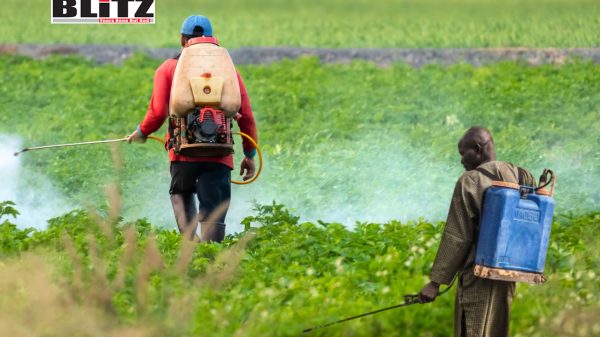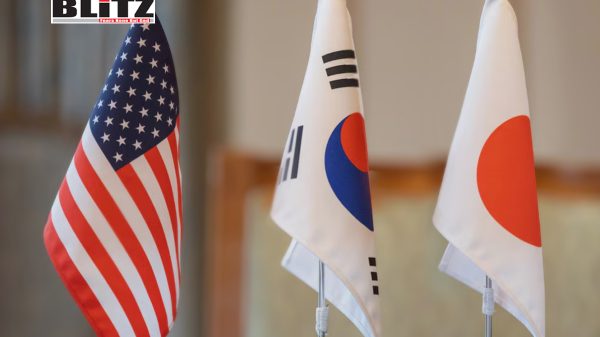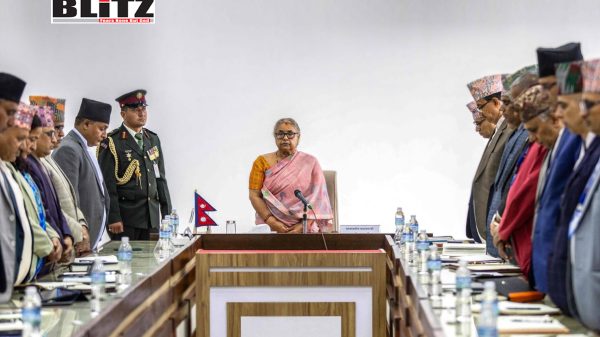Toxic herbicides banned in Nigeria still enter through Chinese imports
- Update Time : Wednesday, September 17, 2025

In the fertile farmlands of northwest Nigeria, fields of cotton, grains, beans, and nuts stretch across Kano State, sustaining millions of smallholder farmers. These farms are the backbone of local livelihoods. Yet, hidden beneath the promise of harvest lies a troubling contradiction: the continued presence of toxic herbicides that Nigeria has officially banned, but which still flow into the country through loopholes, weak enforcement, and foreign corporate influence.
For farmers like 56-year-old Abdulwahab Tsoho Adamu of Tassa village, the dilemma is deeply personal. Adamu grows maize and beans and knows firsthand the appeal of the herbicides paraquat and atrazine-both declared unsafe by Nigerian regulators. Despite being banned in dozens of countries, including across the European Union, they remain widely used in Nigeria. Paraquat was banned in 2023 and atrazine in 2024. But for small farmers battling aggressive weeds, especially during the rainy season, their effectiveness is hard to resist. “If you spray paraquat today, by the following morning it should have killed all the weeds on the farm,” Adamu said. For many, that speed and low cost outweigh the risks.
Nigeria’s National Agency for Food and Drug Administration and Control (NAFDAC) appeared to take firm action. It labeled paraquat “highly toxic to humans and the environment” and acknowledged atrazine’s links to reproductive harm and other health risks. Both were placed under import bans, and NAFDAC carried out raids, seized contraband products, and even arrested vendors.
But investigations by the Organized Crime and Corruption Reporting Project (OCCRP) revealed that enforcement has been inconsistent at best. In 2024 alone, 37 shipments of paraquat and atrazine entered Nigeria after the bans were already in place. The shipments, worth nearly $5 million, were imported mostly by subsidiaries of Chinese-owned firms.
Two companies dominated the trade: Amarshal Com. Agro & Tech Limited and June Agrochemical Nigeria FZE. Amarshal brought in over $3.2 million worth of atrazine between January and March 2024, while June Agrochemical imported nearly $600,000 worth of paraquat in April, along with additional atrazine shipments. Despite bans and moratoriums, journalists found cartons of the herbicides stacked to the ceiling in Amarshal’s Kano warehouses, where they were still openly sold.
Confronted with evidence of continued imports, NAFDAC defended its position by claiming it granted exemptions to firms whose shipments were delayed. These companies, officials said, were allowed to bring in chemicals “strictly under the condition that the products are exhausted within the designated moratorium period.” Yet NAFDAC’s earlier public statements never mentioned such exemptions, and paraquat’s moratorium had already expired by the end of 2023-rendering later imports unlawful.
The case of June Agrochemical highlighted even greater dysfunction. NAFDAC admitted that it had mistakenly granted the company a permit to import paraquat, despite the firm being registered only to operate in Lagos’s Lekki Free Trade Zone. Officials described the approval as an “oversight,” yet the permit remains valid until December 2025.
Critics say this is more than bureaucratic error. “If NAFDAC has phased out and banned a pesticide, it cannot go back and approve its import for the local market,” said Donald Ofoegbu of the Alliance for Action on Pesticide in Nigeria. He argued that such exemptions undermine public trust and reinforce the perception that regulators lack the ability-or will-to police Nigeria’s agricultural chemicals market.
Almost all of the banned herbicides imported in 2024 originated from China, underscoring Beijing’s growing role in supplying agricultural inputs to Africa. Amarshal is majority-owned by Ningbo Double Fusion Import and Export Co., Ltd, based in eastern China’s industrial hub of Ningbo. June Agrochemical belongs to the Chinese YMDY Group, which also operates in Ghana, Mali, Côte d’Ivoire, and even the United States. Neither company responded to requests for comment.
This pattern highlights a larger global problem: hazardous chemicals banned in wealthier nations continue to be exported to developing countries, where regulations are weaker and oversight often insufficient. For many Chinese firms, Africa is a lucrative market to offload products no longer acceptable at home.
For Nigerian farmers, the issue is more about survival than regulation. Weeds threaten harvests, and safer alternatives are often too expensive or less effective. “I do use protective equipment, such as eyeglasses, gloves, helmets, face mask, and boots, but not always,” admitted 49-year-old farmer Muhammad Khamis, who grows beans in Tamburawa. Many others use no protection at all, unaware of the dangers.
The ready availability of paraquat and atrazine has also discouraged the transition to safer alternatives. Without subsidies, training, or buy-back programs to remove toxic stockpiles, farmers naturally rely on what they know works. “Banning a chemical on paper does not guarantee enforcement,” explained Professor Adewoye Olayinka of Ladoke Akintola University. “Without strict monitoring and collection programs, cheap and effective herbicides will remain in circulation.”
The risks of these chemicals are severe and well documented. Paraquat is acutely toxic, with a history of fatal poisonings worldwide; even small exposures can cause irreversible lung damage. Atrazine has been linked to endocrine disruption, reproductive harm, and contamination of soil and water. Their continued use threatens not only farmers but entire communities relying on farmland and groundwater.
Professor Ambali Suleiman of the University of Ilorin stressed that bans must be paired with education and alternative solutions. “The ban on herbicides must be enforced using multifaceted strategies,” he said, pointing to the need for public awareness campaigns, legal frameworks, and alternative weed-control methods.
The persistence of banned herbicides in Nigeria reflects wider institutional weaknesses. Agencies like NAFDAC and the Federal Ministry of Agriculture face chronic shortages of staff, funding, and infrastructure. Policing rural markets across Nigeria is an overwhelming challenge, compounded by corruption, political interference, and negligence.
The herbicide scandal shows how multinational corporations exploit weak regulatory systems, prioritizing profits over public safety. For ordinary Nigerians, it is yet another example of a system where rules are made but rarely enforced, leaving citizens vulnerable to risks that should have been prevented.
Ultimately, Nigeria’s ban on paraquat and atrazine demonstrates the limits of paper laws without practical enforcement. Despite official prohibition, the chemicals continue to enter ports, fill warehouses, and end up on farmers’ fields. Farmers remain largely unaware of the long-term dangers, regulators continue to contradict themselves, and foreign companies face little accountability.
As Ofoegbu bluntly put it, regulators should never have allowed post-ban imports. Yet with enforcement gaps, permissive loopholes, and economic pressures on farmers, the cycle is unlikely to stop anytime soon. Unless Nigeria invests in enforcement, public education, and affordable alternatives, toxic chemicals will keep slipping through the cracks-leaving human health and environmental safety to pay the price.
















